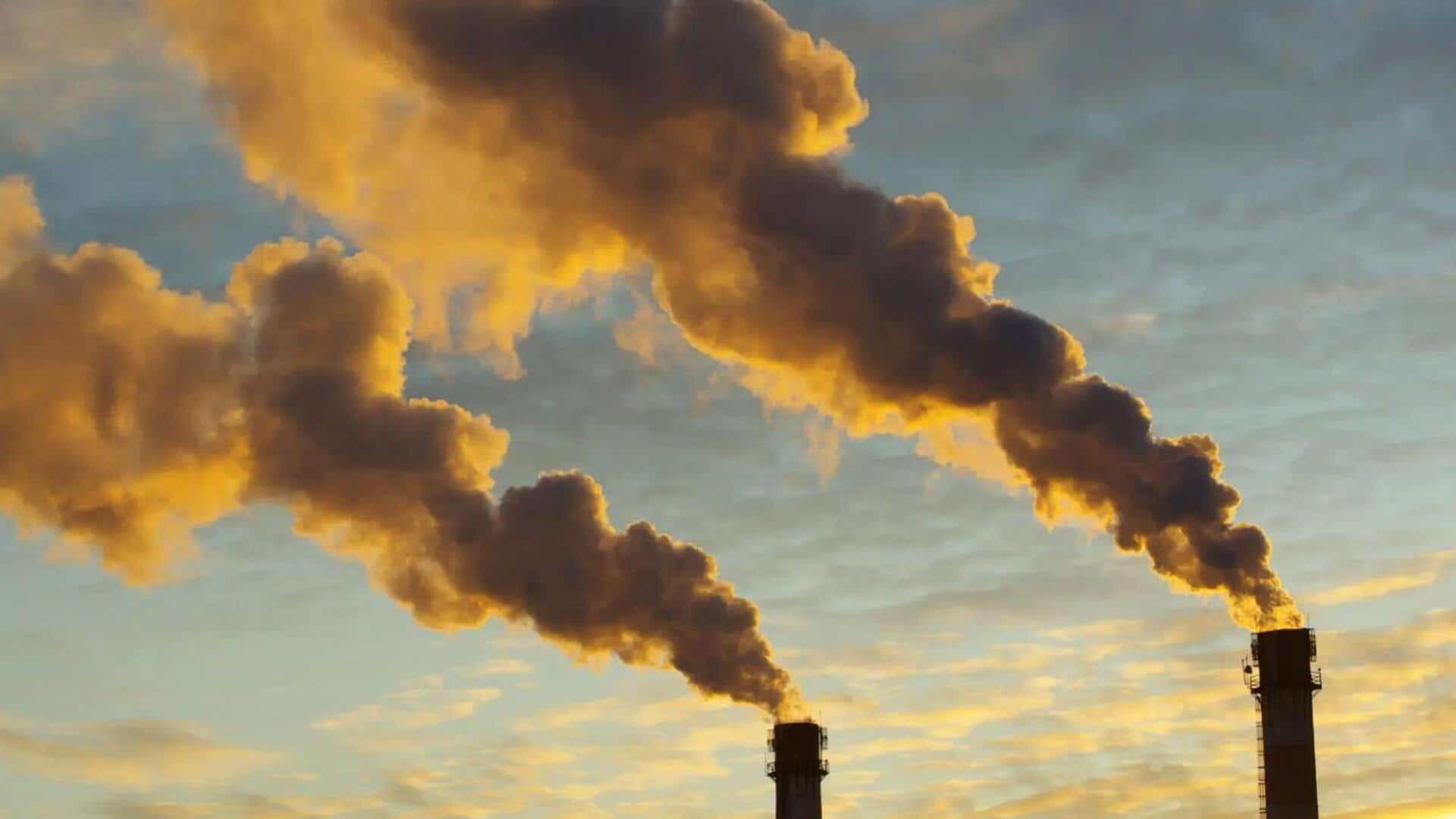Record-breaking CO2 levels discovered in atmosphere signaling climate crisis
What's the story
The American Southwest is currently experiencing extreme temperatures due to a destructive "heat dome," coinciding with reports of record-breaking atmospheric carbon dioxide (CO2) levels.
The National Oceanic and Atmospheric Administration (NOAA) disclosed that the concentration of this greenhouse gas, primarily released by fossil fuels, reached nearly 427 parts per million in May.
This figure signifies an increase from last year's peak and is the highest level ever recorded.
Climate impact
Climate events highlight urgency of carbon reduction
NOAA Administrator Rick Spinrad highlighted the severity of the situation, stating, "Over the past year, we've experienced the hottest year on record, the hottest ocean temperatures on record, and a seemingly endless string of heat waves, droughts, floods, wildfires, and storms."
He emphasized that these events are clear indicators of carbon dioxide pollution's detrimental impact on our climate.
Spinrad called for swift action to decrease fossil fuel consumption.
Rising levels
Rapid rise in carbon pollution alarms scientists
The Scripps Institute of Oceanography at the University of Southern California has been monitoring CO2 levels since 1958.
It reported a record-breaking increase in atmospheric carbon pollution during the first four months of 2024.
According to Ralph Keeling, Director of the Scripps lab that measures CO2, not only is CO2 now at its highest level in millions of years, but also rising faster than ever before.
Warming predictions
Global warming predictions exceed Paris agreement limits
The World Meteorological Organization estimates a nearly 50% chance that average global temperatures from 2024 to 2028, will exceed the warming limit set at the Paris 2015 climate talks.
The second annual Indicators of Global Climate Change report states that human-induced warming has risen to 1.19°C over the past decade, an increase from the previous decade's figure of 1.14°C.
The global temperatures are still heading in the wrong direction and faster than ever before.
Carbon budget
Carbon budget nears exhaustion amid rising emissions
The same report also reveals that the remaining carbon budget, which represents the amount of carbon dioxide that can be emitted before global warming reaches 1.5°C, is approximately 200 gigatons.
This figure equates to roughly five years' worth of current emissions.
Jennifer Francis, a scientist at the Woodwell Climate Research Center in Massachusetts, warned, "Until greenhouse gas concentrations level off, we will keep breaking temperature records, along with increasingly frequent and intense extreme weather events."
